Proposal to add objects to be managed by enterprises
Discussing at the National Assembly on the morning of May 20, National Assembly Deputy Tran Thi Nhi Ha (Hanoi) said that in the context of the National Assembly trying to remove all barriers for the private economy , the revised contents of the Enterprise Law this time need to be easy to understand, easy to implement and can be put into practice as soon as it comes into effect.
Giving opinions on the content of fraud control and "virtual capital" control, delegates agreed with the drafting agency's approach of not requiring additional conditions or documents during the business registration and establishment process. That is, there is no "pre-check" on this issue.
The practice of the Enterprise Law over the past three decades has proven that simple, convenient and easy business establishment is one of the extremely important regulations helping Vietnam develop the private economy.
Instead, state agencies need to strengthen post-inspection of cases suspected of establishing enterprises to commit illegal acts.
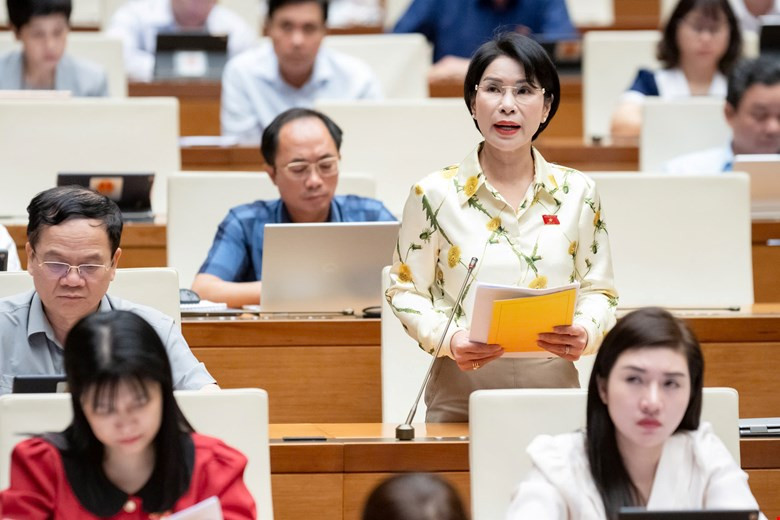
National Assembly Delegate Tran Thi Nhi Ha. Photo: QH
“However, I propose adding a post-audit mechanism based on risk management, instead of arbitrary and capricious inspections, which can easily cause trouble, waste time for businesses and give rise to negativity.
State agencies must develop risk assessment criteria, score risks and inspect businesses at a high frequency for high-risk businesses and a lower frequency for low-risk businesses," delegate Ha suggested.
According to Ms. Ha, this risk-based inspection measure has been applied in the tax and customs sector, bringing many benefits and being very effective. Currently, a database of enterprises is being built and fully compiled. This is a very good basis for implementing risk scoring and risk-based inspection.
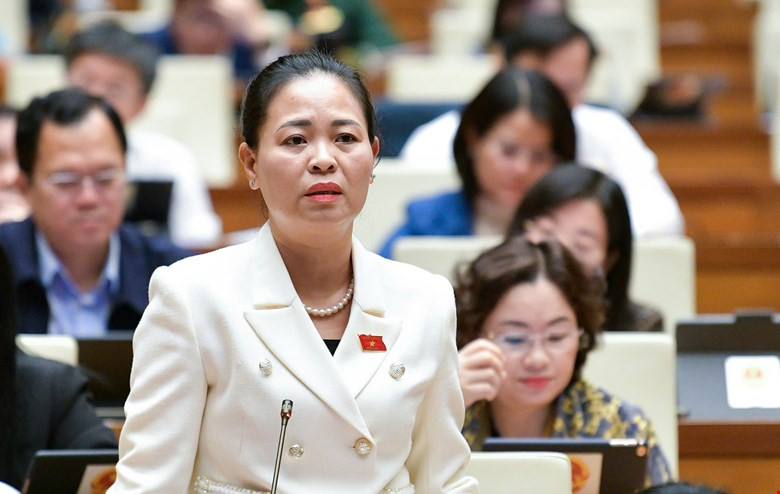
National Assembly Delegate Nguyen Thi Thu Dung. Photo: QH
According to Point b, Clause 2, Article 17 of the Law on Enterprises (amended), cadres, civil servants, and public employees, except for public employees working at highereducation institutions, are allowed to participate in the management and operation of enterprises established by such institutions, and participate in the establishment to commercialize research results created by such institutions.
In case the civil servant is an employee, the consent of the head of the public higher education institution must be obtained. In case the civil servant or manager is the head of the public higher education institution, the consent of the immediate superior must be obtained.
Discussing this content, National Assembly Delegate Nguyen Thi Thu Dung ( Thai Binh ) proposed adding the phrase "public vocational education institution", because in reality, vocational education institutions also have the need to establish businesses to commercialize research results.
Ms. Dung said that the Law on Vocational Education also has provisions allowing the establishment of enterprises in vocational education institutions. The Law on Teachers also stipulates that teachers have the right to participate in establishing and operating enterprises associated with training and research activities at educational institutions.
Clarifying the content of 'beneficial owner' of the enterprise
According to delegate Tran Thi Nhi Ha, the draft regulation on the concept of “beneficial owner” to comply with anti-money laundering commitments is necessary. However, this is a difficult issue because the criteria for determining beneficial owners are unclear. The draft orientation will assign the Government to specify the criteria in detail.
Delegate Ha Sy Dong (Quang Tri) stated that the 2022 Law on Anti-Money Laundering also has the concept of “beneficial owner” and assigned the Government to provide detailed regulations. The Government also issued Decree 19/2023/ND-CP on this issue, applicable to transactions of credit institutions.
However, Mr. Dong said he had consulted credit institutions and was told that these criteria were very general and difficult to comply with.
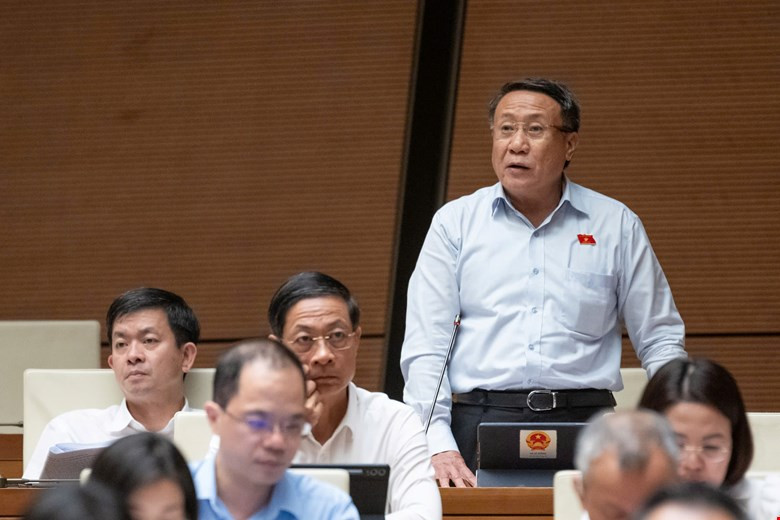
National Assembly Deputy Ha Sy Dong. Photo: QH
Currently, credit institutions still rely on self-declaration by customers and business account holders. There are no specific measures to verify the beneficial owners of businesses.
“It is already difficult for businesses to provide information about beneficial owners to banks, so if we now regulate this when businesses provide information to state agencies, it will be even more difficult,” said Mr. Ha Sy Dong.
In addition, many businesses are also concerned that the criteria for determining beneficial owners are unclear. If they do not notify, they face the risk of being punished.
“Therefore, I propose that for now, hard and clear cases (such as direct or indirect ownership of 25% or more of capital) must be declared. Failure to declare will result in penalties. For cases where the criteria are qualitative (such as individuals with controlling rights), there are also regulations requiring declaration, but for now, there will be no penalties when businesses do not declare fully.
Later, when state agencies have clearer and more complete regulations on the concept of beneficial owner, sanctions will be applied to cases of inaccurate or incomplete declarations," Mr. Dong suggested.
Vietnamnet.vn
Source: https://vietnamnet.vn/hau-kiem-khong-phai-viec-kiem-tra-tuy-tien-tuy-hung-cua-can-bo-2402910.html










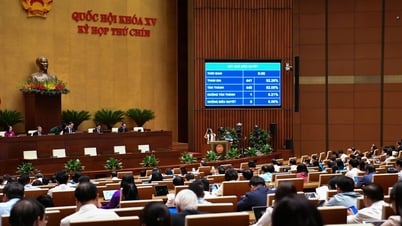















































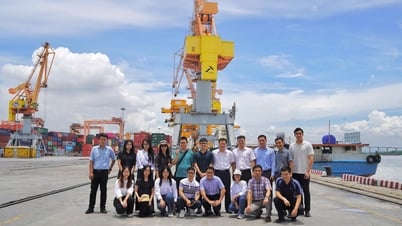













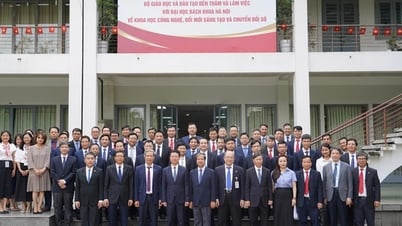




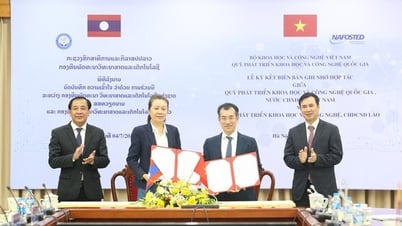







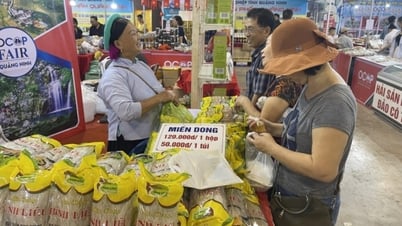


![[OCOP REVIEW] Bay Quyen sticky rice cake: A hometown specialty that has reached new heights thanks to its brand reputation](https://vphoto.vietnam.vn/thumb/402x226/vietnam/resource/IMAGE/2025/7/3/1a7e35c028bf46199ee1ec6b3ba0069e)












Comment (0)